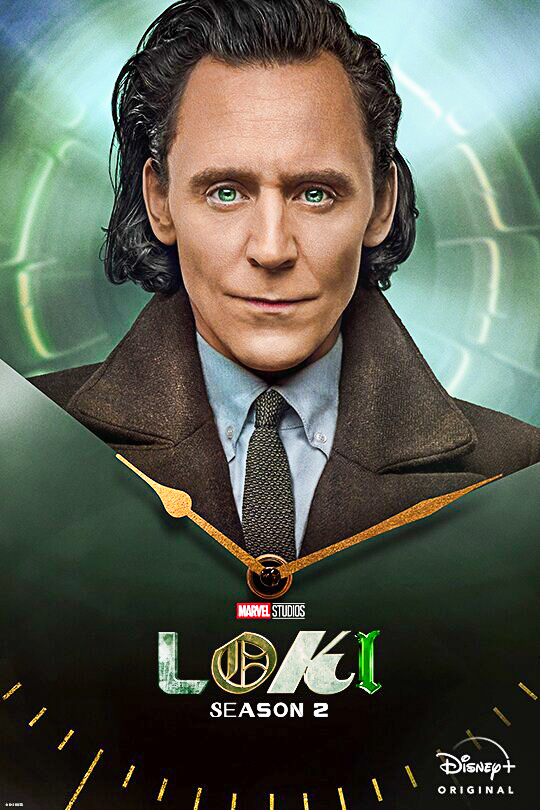In “Avengers: Endgame” (2019), when Loki grabbed the tesseract and disappeared, many Marvel fans wondered what was next for the God of Mischief. Luckily, just a couple years later, we were treated to Disney+’s “Loki” (2021), created and written by Michael Waldron. The show follows Loki and his adventures within the TVA, a corporation that watches over all of time.
When season one ended in July of 2021, I found myself underwhelmed. While I could watch Tom Hiddleston play the titular character for hours, I thought the jumbled story and ending left me wanting so much more. Thankfully, season two solved almost all of those issues. The second season takes the show in new and exciting directions, leaning hard into the wacky science-fiction of the first season.
The show stars Hiddleston, Owen Wilson, Sophia Di Martino and Ke Huy Quan. All six episodes of season one were directed by Kate Herron, while season two was mostly directed by the collaborative team of Justin Benson and Aaron Moorhead.
All the performances from both seasons are truly exceptional. Hiddleston plays Loki with so much charm and charisma it’s impossible not to root for him. While season one focuses on Loki realizing that he can choose his own path, season two shows Loki deciding what to do with that choice. It is really incredible seeing the growth between where Loki started in “Thor” (2011) and where he is now. Other great performances include Owen Wilson as TVA agent Mobius, who has tremendous chemistry with Hiddleston, Ke Huy Quan as OB and Sophia Di Martino as Sylvie. Every actor brings life and energy into their characters, leaving nothing on the table.
Writers Michael Waldron and Eric Martin craft a show that truly just focuses on character growth. Throughout the 12 episodes of the show, there are very few large fight scenes — something that has plagued Marvel television shows. Most scenes consist of characters talking about their feelings and the plot unraveling around them. This allows the audience to connect directly with even the smallest of side characters and to know their motivations, giving a satisfying conclusion to their storylines at the end of season two. Mobius’ goodbye is especially emotional and satisfactory, giving him a moment of quiet and peace, something he has been searching for all season.
Furthermore, the cinematography of season two is absolutely phenomenal. The movement of the camera throughout all six episodes is very subtle, but always finds its way back to center on a character and drive home the emotional scenes. The color palette of season two uses hues of green and orange in complementary and pleasing ways. The real MVP of both seasons one and two is composer Natalie Holt, who absolutely kills it with the score for the entire series. Both the intro theme and the theme for the credits are amazing.
“We approached this as like two halves of a book,” Martin said in an interview with Cinemablend. “Season one, first half. Season two, we close the book on Loki and the TVA.”
After watching season two, I can now appreciate and understand season one much more. Season two, however, is without a doubt the best show or movie Marvel has produced since “Avengers: Endgame.”























































































































